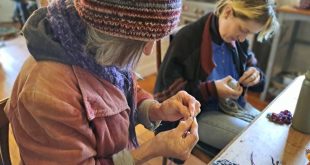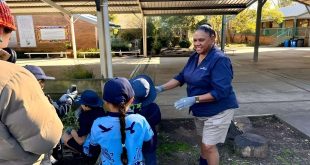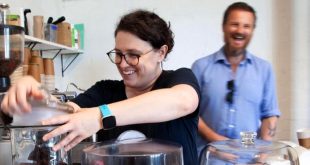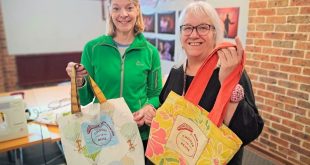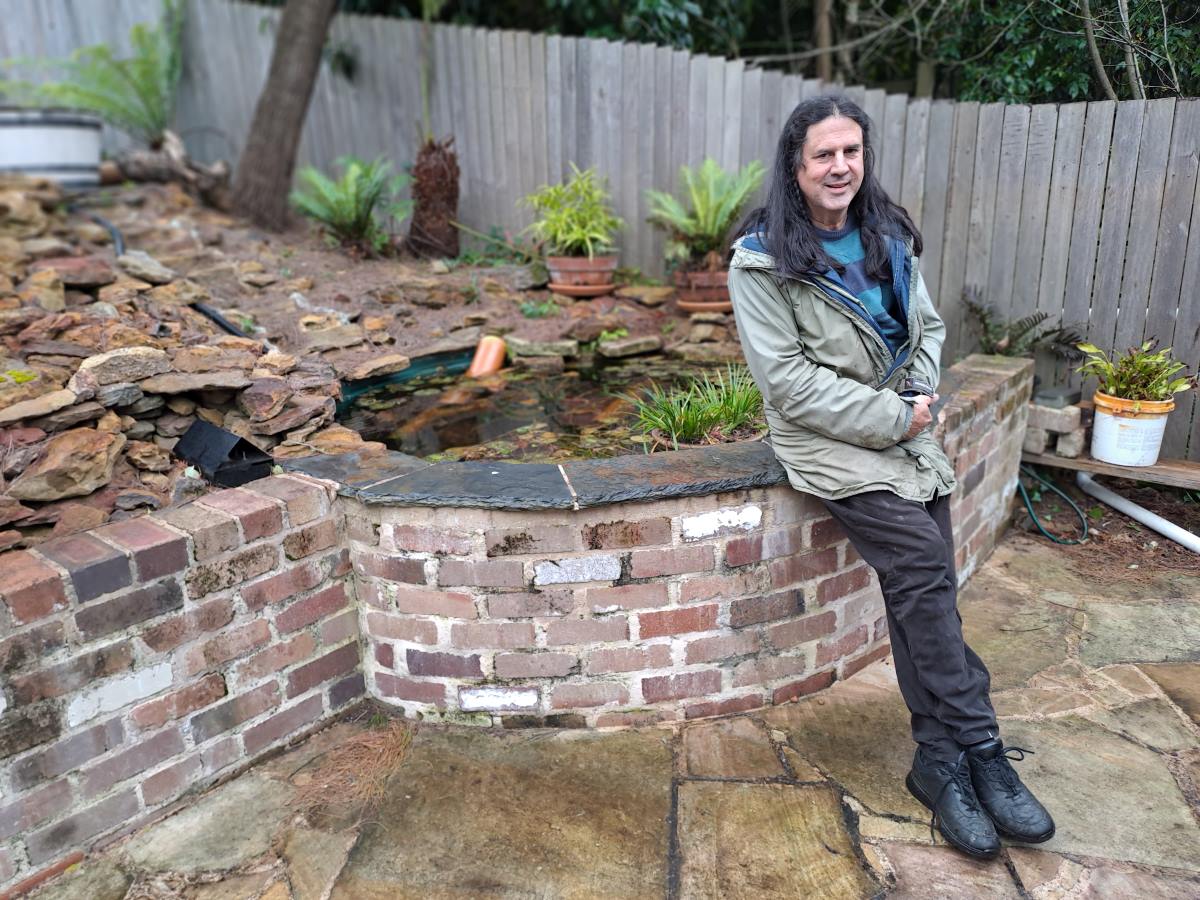
Ian Tanner, founder of Ecological Funding Group, at his backyard pond.
Story by Belle Butler
In response to the global biodiversity crisis, which has seen around 69% of wildlife populations decline in 50 years, Lawson resident Ian Tanner has established an Ecological Funding Group which is raising funds to provide focussed donations to the Environmental Defenders Office and The Nature Conservancy.
Key Points:
- Biodiversity is critical for sustaining life on the planet. The greater the diversity of our ecosystems, the greater our resilience.
- Contributing 1% of GDP could help reverse the biodiversity crisis.
- One main focus of the Ecological Funding Group is hosting tours into the bush in order to encourage people to become more deeply involved with the natural world.
There’s nothing quite like a near-death experience to jolt you into action (or to start a story!). Lawson resident Ian Tanner was having some late-night fried rice when a mouthful became lodged in his airway. He couldn’t breathe or utter a sound to wake anyone in the house. As he tried to stay calm, he found himself staring at the dirt on the floor:
“I remember thinking, this is the last thing I’m going to see, and how pointless is that. I’ll be remembered as someone who indulged and travelled a lot. I realised my whole life had been indulgences.” – Ian Tanner
This mid-choke thought evolved into a big-picture insight: “I could sort of see all of time as a block. Like an iron block that was bigger than you could ever imagine, and that was unconscious matter, the way most things are. But we are conscious, we’re alive, we live. And we live through each other, through the biosphere, through the biological processes that we have, eating, breathing and everything biological. It’s not about the buildings and the concrete, it’s about life and the beautiful forms that it takes.”
Ian was eventually able to dislodge the food, but the incident left a lasting impression. He felt an acute need to act in the best interests of the planet. Ian changed his lifestyle, personally donating to wildlife conservation and land conservancy groups, investing in solar panels and an EV (the resultant savings of which he also donates), and repurposing the flat ‘football pitch’ of his backyard by turning it into a Farm It Forward food growing plot. Thinking bigger, in 2019 he created the Ecological Funding Group, which raises money to donate to professional action groups working to stop biodiversity loss and to repair ecology.
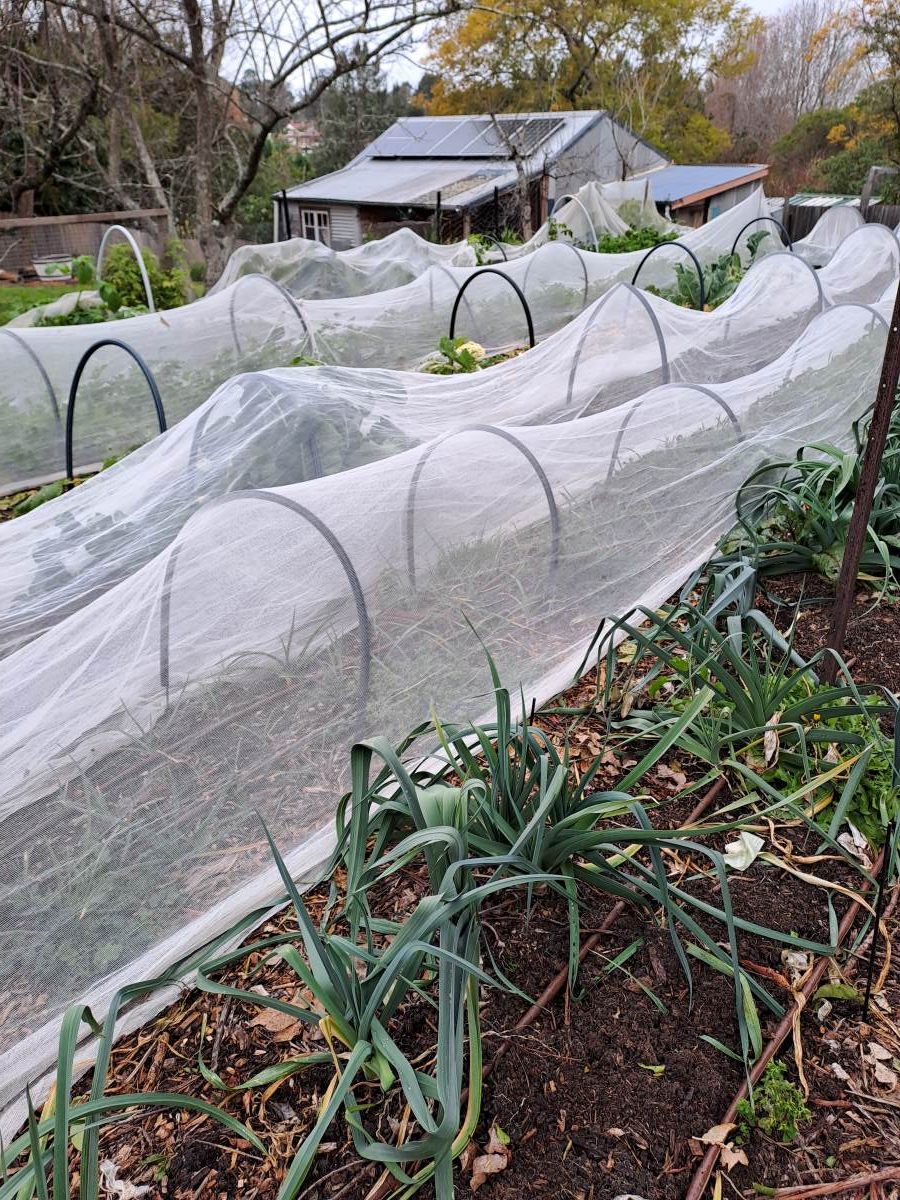
Ian’s family has a Farm It Forward growing plot in their backyard.
Biodiversity is critical
Biodiversity is critical for sustaining life on the planet. Among many other benefits, diverse ecosystems provide sustenance, shelter, medicine and other resources; they regulate climate, control disease, support nutrient cycles and pollination; and they provide places for respite and recreation. It is estimated that about half of Australia’s economy relies on these systems. The greater the diversity of our ecosystems, the greater our resilience.
Over the last 50 years there has been about a 69% decline in wildlife populations. When we lose one part of the system, we weaken the system itself. Most biodiversity loss has been a result of human activity, while human-induced climate change is predicted to become the biggest threat to biodiversity in the coming decades. In a chicken and egg kind of scenario, maintaining and restoring biodiversity will help slow and mitigate the effects of climate change.
“Not nearly enough money is going into biodiversity,” Ian said, citing an article from The Nature Conservancy that stresses the need for a shift in how we value and invest in nature. “It’s the poor cousin of climate change, but the climate crisis will be the collapse of ecology. To stop the biodiversity crisis we need to put 1% of GDP in. So I thought, ‘the governments aren’t doing enough, so I’m just going to do more.’”
Ian does this via his Ecological Funding Group, which raises money in a variety of ways. The Group accepts individual contributions, hosts fundraising events such as music gigs and bird watching tours, and collects recyclable containers in collaboration with Katoomba High School and from events such as this year’s Winter Magic Festival to deposit for cash refunds. All money coming in goes out, with focussed donations going to the Environmental Defenders Office and The Nature Conservancy.
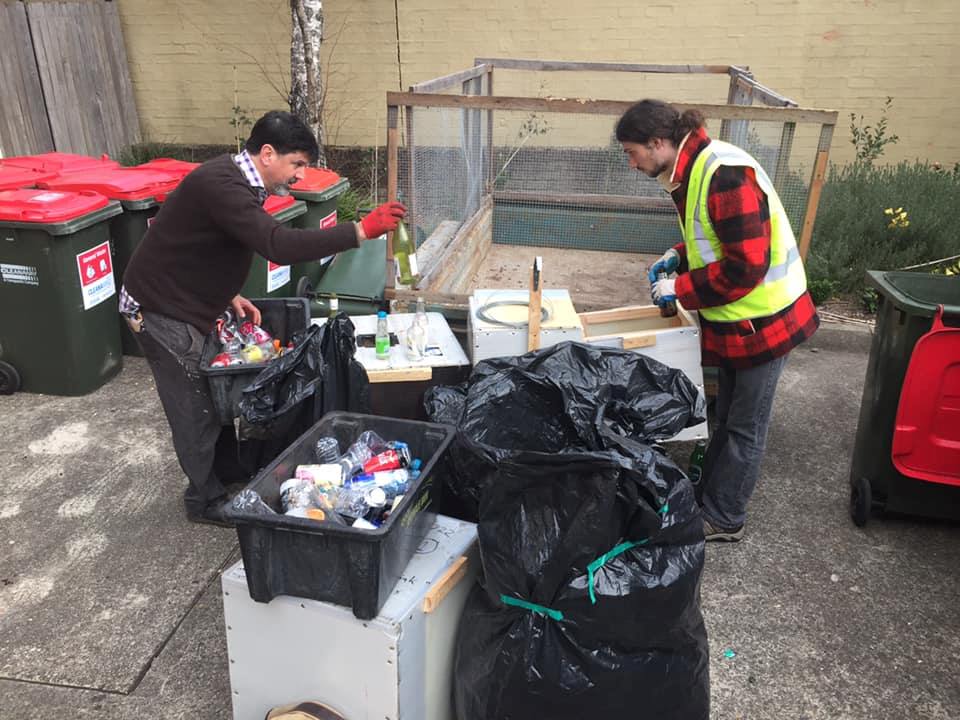
Ian and his son Will sorting out containers from the Winter Magic Festival 2019. (supplied)

Containers collected from this year’s Winter Magic.
Ian credits his core bond with nature to a ‘trip out bush’ he took with a friend when he was 19. “And that connection is really important, because you don’t care about it if you’re not connected to it,” he said. For this reason, one main focus of the Group is hosting tours into the bush in order to encourage people to become more deeply involved with the natural world. “The bird watching trip was so effective because it was a fundraiser and participants got that connection with nature. So, they’re giving money towards nature and making that connection with it: they can see the whole thing in motion.”
The Group is also currently working on a prototype for turtle islands as a public sculpture, with the potential to later sell.
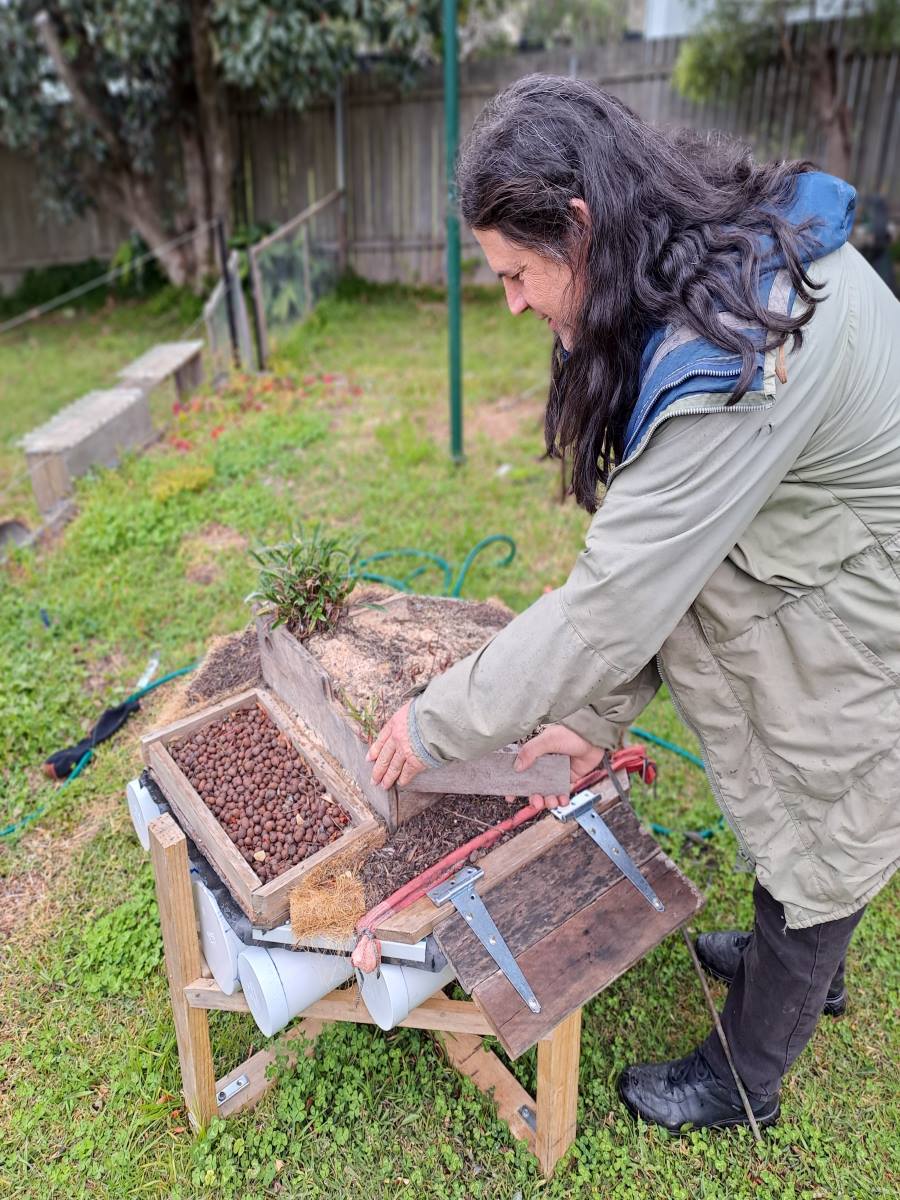
Ian with an early-stage prototype of a turtle island.
Ian sees reconnecting us with our environment as a key aspect of convincing human populations to adequately fund the reversal of the biodiversity crisis. “We all rely on the biosphere, but because of our power we are isolated from nature. Whole ecosystems might be lost and people wouldn’t immediately notice it, even though it will affect them later. It takes imagination and altruism towards future generations to see that.”
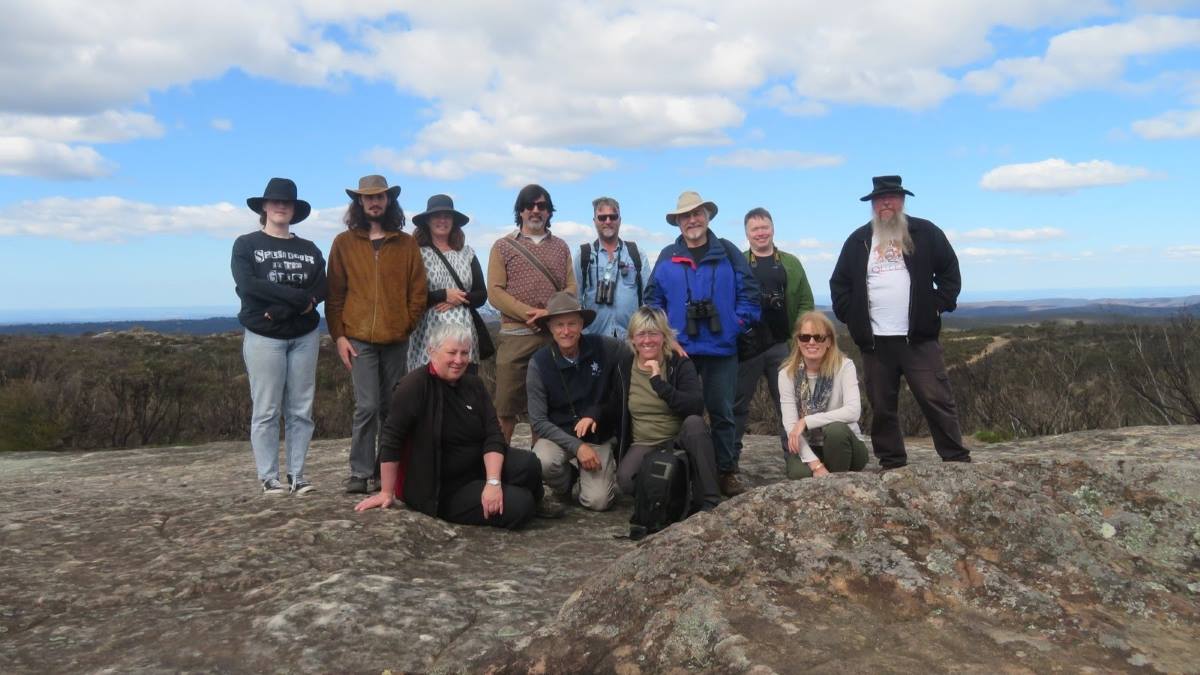
The first bird-watching tour coordinated by Ecological Funding Group and hosted by bird enthusiast Dion Hobcroft. (supplied)
Moving forward, Ian would like the Ecological Funding Group to expand and host more nature tours, events and fundraising opportunities. “I see it as a real opportunity to bring people together, and I want it to be dynamic and growing.”
He encourages anyone who wishes to be involved to get in touch, and he hopes that everyone finds a way to contribute that 1% required to turn the biodiversity crisis around. “Our time is so short compared to this hugeness of time,” he said. “We as conscious individuals must do something. We all owe it, this is the debt we owe to the biosphere. And even a small amount makes you feel good about yourself.”
Take Action:
- You can get in touch with Ian via the Group’s Facebook page: Ecological Funding Group
- Further reading:
Share this article:
This story has been produced as part of a Bioregional Collaboration for Planetary Health and is supported by the Disaster Risk Reduction Fund (DRRF). The DRRF is jointly funded by the Australian and New South Wales governments.
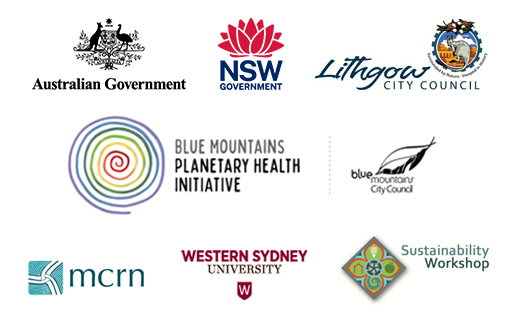
More from around the region
The fabulous Gang Gang Farmers Market in Lithgow will be back when the weather warms up. Meet some stallholders and whet your appetite for their Spring re-opening in Lithgow Area Local News (link in profile)
https://lithgowlocalnews.com/gang-gang-farmers-market/
#markets #lithgow #localproduce #planeteryhealth #buylocal
Imagine having enough absorbent green spaces, water tanks and underground water storage to capture the damaging stormwater that runs off hard surfaces in extreme wet weather events; imagine having enough stored water and the ability to clean all the water we use so that we are prepared for future drought and fire seasons. Join the discussion about how we can do this at a Free Water Symposium on Friday 26 July at the Planetary Health Centre. Bookings essential (link in profile): https://www.eventbrite.com.au/e/future-proofing-with-circular-water-tickets-943977701717
#circularwater #greywater #blackwater #stormwater #waterrecycling #togetherwecan #disasterriskreduction #beprepared #extremeweather #planetaryhealth #bushfire #flood #drought
Beyond the Yellow Bin: Surprising Things You Can Recycle – and How to Do it!
Here’s a guide to help Springwood and Greater Blue Mountains residents access the most effective recycling options available in the local area. Read more in Springwood Area Local News (link in profile): https://springwoodlocalnews.com/recycling-in-the-blue-mountains/
#recycling #circulareconomy #reuse #reduce #recycle #bluemountains #springwood #planetaryhealth #togetherwecan
Hamish Dunlop interviews prize-winning children’s book illustrator, mother, activist and proud Bundjalung woman, Charmaine Ledden-Lewis about the power of storytelling and how we can inspire our children to build a better world. Read more in Blackheath Area Local News (link in profile): https://blackheathnews.com/charmaine-ledden-lewis/
#changethestory #abetterworld #powerofstorytelling #bundjalung #illustrator #firstnations #planetaryhealth #blackheath #bluemountains
Broken chair? Blown amp? Busted washing machine? They don’t have to be thrown away! These Mid Mountains fixers and makers will revive them. Read more in our Mid Mountains Repair Guide: Choosing Longevity in an Age of Disposability. You can find it in Mid Mountains Local News (link in profile): https://www.midmtnslocalnews.com/mid-mountains-repair-guide/
#repair #repairculture #fixing #reuserecycle #longevity #togetherwecan #thebigfix #planetaryhealth #midmountains #repairguide
In this video, Dharug artist Leanne Tobin talks eloquently about the critical importance of water and why it`s the theme of her two paintings in the Water for Life exhibition at the Blue Mountains Planetary Health Centre. View the paintings and learn more about the many ways we can work together to manage water better at our free Water Symposium next Friday 26th July. Bookings essential (link in profile): https://bit.ly/3LiuJWi
The full video can be viewed on our YouTube channel (link in profile)
#waterforlife #leannetobin #firstnations #waterissacred #planetaryhealth #watersymposium
Electric vehicles continue to grow in popularity across Australia, but many people are still uncertain about their benefits, feasibility, and availability. To try and help local communities in the Lower Mountains have a better understanding of what EV’s can offer, @parentsforclimatebluemountains are hosting an EV Showcase in Blaxland on Saturday 27 July to help bust the EV myths and provide helpful, up-to-date and accessible information. 33 Hope Street Blaxland between 10 am and 12.30 Read more in Lower Mountains Local News (link in profile): https://lowermtnslocalnews.com/community-ev-showcase-blaxland/
#electriccars #blaxland #bluemountains #ev #planetaryhealth #towardszeroemissions
As part of our Water Demonstration Site at the Blue Mountains Planetary Health Centre we`ve installed a range of sprinklers to show people how to protect their homes from bushfire. Plumber Daniel Brown will be giving a tour at our upcoming event: Future Proofing with Circular Water on Friday 26 July. The event is free but bookings essential at https:bit.ly/4f78K1Z (link in profile) #bushfiresprinklers #beprepared #planetaryhealth
Global problems are creating renewed interest in traditional DIY skills like sewing. Here’s how a local grandmother is sharing her rag trade experience to make a difference and how you can get involved. Read more in Katoomba Area Local News (link in profile): https://www.katoombalocalnews.com/upcycling-fashion-workshops/
#skillshare #givingback #sharing #upcyclingfashion #sewing #patternmaking #repair #clothingadjustments #wastereduction #textilewaste #creativity #planetaryhealth
Calling all plumbers, builders, architects, engineers and any community members interested in learning ways we can manage water to reduce the impact of future droughts, floods and fires. On Friday 26 July we`ll be bringing together leaders in bushfire sprinkler system design, Hydraloop technology which can recycle 40% of your greywater, the program manager for drought from Sydney Water, and the designer of our 150,000l underground water storage system which will be capturing and cleaning stormwater for firefighting as a model for what we could build at the end of flame zone streets. Speak to a plumber about installing tanks and water systems and be in the running to trial one of two free Hydraloops we have on offer. This grant-funded event is free but bookings essential (link in profile):
https://bit.ly/4f78K1Z
This event is being supported by the Disaster Risk Reduction Fund which is funded by the Australian and New South Wales governments.
@hydraloop_systems @sydneywater @nswreconstructionauthority #greywaterrecycling #watertanks #firefighting #beprepared #drought #fire #flood #heatwave #bushfiresprinklers #planetaryhealth #disasterriskreduction
Our fortnightly Planetary Health Newsletter shares news about upcoming events, like our free Water Symposium on Friday 26 July, and stories from the Lower Mountains to Lithgow that are jam-packed with inspiration and a blueprint for the way forward.
Read it here and subscribe via any of our news sites (links in profile):
https://bit.ly/4cXQg2f
In this edition:
Katoomba Area Local News: Learning How To Upcycle Fashion with Sherlie McMillan
Mid Mountains Local News: Mid Mountains Repair Guide: Choosing Longevity in an Age of Disposability
Blackheath Area Local News: Charmaine Ledden-Lewis on Stories for a New World
Lower Mountains Local News: Busting The EV Myths: Community EV Showcase & Information Event Comes to Blaxland
Springwood Area Local News: Beyond the Yellow Bin: Surprising Things You Can Recycle – and How to Do it!
Lithgow Local News: The Gang Gang Farmers Market will Return in Spring!
#planetaryhealth #systemicchange #togetherwecan #solutions #constructivejournalism #watersymposium #hyperlocalnews
What an inspiring day at the Planetary Health Centre yesterday! We launched the Planetary Health Storytelling Network after a brilliant workshop with award-winning health writer and author Sophie Cousins on Our Community, Our Stories: Writing for Change. The Network will include all types of storytelling for planetary health: from songwriting to video, creative non fiction and visual arts. We`ll be having our first reading by Lorraine Shannon on the theme of GARDENS at 6.30pm on Thursday 8 August. All welcome to come along and share. SAVE THE DATE!
#planetaryhealth #changethestory #togetherwecan #storytelling #storytellingforchange #planetaryhealthstorytellingnetwork


